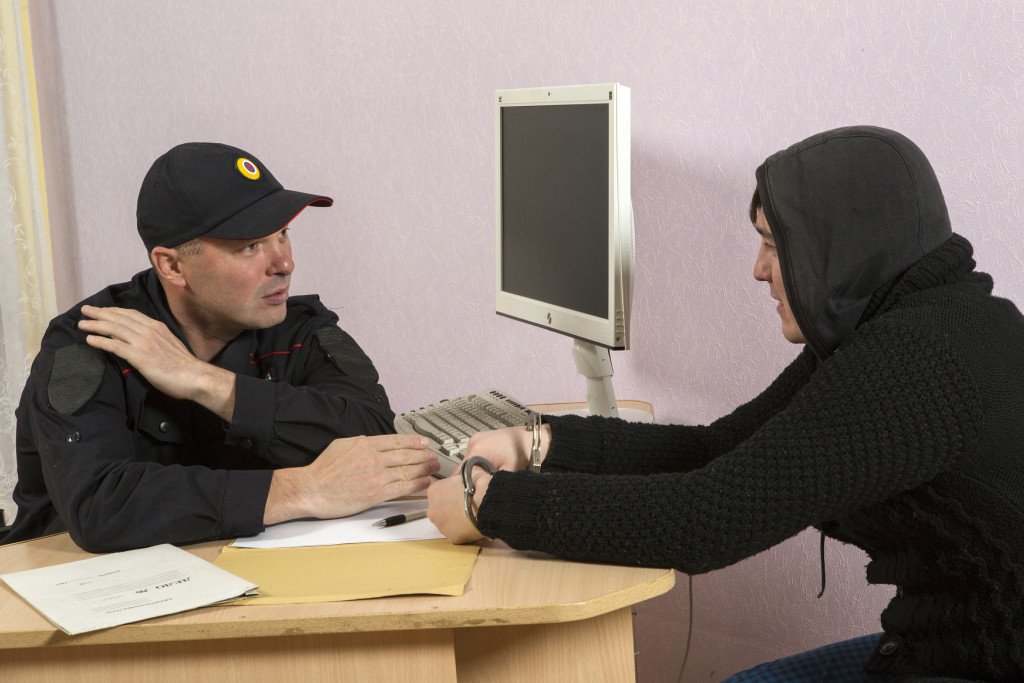When it comes to getting arrested, most people don’t know what to do, and that’s understandable. Although thousands of people end up in jail, many still assume it will not happen to them.
This guide will walk you through the basics of what happens when you get arrested and how to prepare yourself.

1. Remain Calm
Although it feels impossible at the moment, you will want to remain calm. Find no reason to be upset or angry, especially at the police. Acting out in this way can lead to additional charges being brought against you.
However, don’t admit anything. Even if the police tell you that they have proof of your guilt and that cooperating would just be easier on everyone involved, it is important not to say anything.
They may know what happened but cannot prove it without your help and cooperation. You will need all of your self-control for what’s ahead, so save the words and explanations until later when you are in front of a judge with legal representation present.
2. Request a Lawyer as Soon as Possible
Depending on local laws and procedures, once arrested you can request a lawyer immediately. If you cannot afford one, a public defender will be appointed to represent you. Because of the cost of legal representation, this is not advised if you are only being booked for something minor like public intoxication or traffic violations.
Don’t answer questions without your lawyer present. No matter how nonchalantly, calmly, and convincingly the police try to get their suspect talking after being detained, he has no obligation—except for perhaps turning over his name—to answer or cooperate with them in any way.
You don’t have to clue them in on where you are staying, whether you have used an alias when checked into a hotel, or if you’re carrying drugs, weapons, or stolen property. Anything that you say can be used against you, so think before speaking.
The same applies even if they offer leniency. Sometimes what appears to be leniency might turn out not only to be untrue but also unfair in which case anything incriminating you tell them may well come back to haunt you once it’s time to stand trial.
3. Remember Privacy Rights
The Fourth Amendment protects you against illegal searches and seizures, but it does not apply to anything said outside your home unless in your own words an officer alleges that they have probable cause to make an arrest.
An arrest occurs when someone has been taken into custody or deprived of their freedom in any significant way, whether it’s by force or by police action, even if they consent to it out of fear of harm if they resist. Any confession made outside his presence may be admissible evidence in court. As a result, anything incriminating you say to an officer before an attorney is present may be used against you.
The Fifth Amendment protects you from self-incrimination and can also potentially save your life during questioning and provide an opportunity to take the heat off yourself by implicating someone else. This doesn’t mean that you should start naming names or pointing fingers at others, but it will help save you if they have evidence to prove that you are guilty beyond a reasonable doubt without a confession.
4. Prepare for Your Bail, If Necessary
The police officer will probably give you some kind of paper called a “Notice to Appear,” which requires you to appear in front of the judge at your arraignment hearing. Depending on the criminal class or the severity of the crime, the judge might agree to release you temporarily as long as you pay bail.
You’re lucky if the bail is only a couple of hundreds of dollars. Often, they can run thousands. If you or your family need financial help in this area, you can approach a bail bondsman.
A bail bondsman will post bail for you in exchange for a fee, usually ten percent of the total. You have to pay that amount in full before being released. If you don’t show up at your arraignment hearing, it’s forfeited, and you will probably go straight to jail.
If you happen to find yourself in a situation where the police have arrived and are about to arrest you, there’s no need for panic. You should stay calm and do what they say until your lawyer arrives, or if this is not possible, request one as soon as possible.
Although getting arrested can feel overwhelming and intimidating, everyone deserves the right to an attorney, and they are protected by specific laws.

